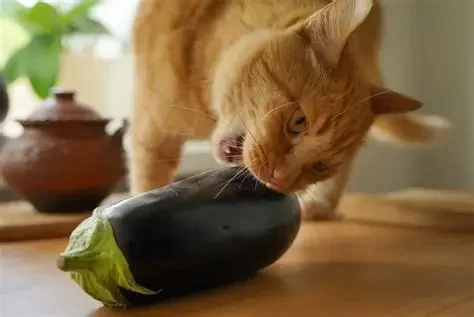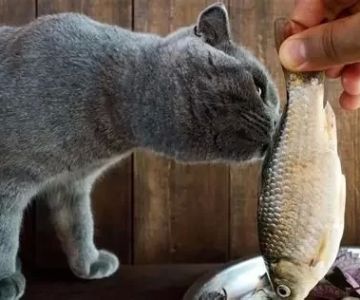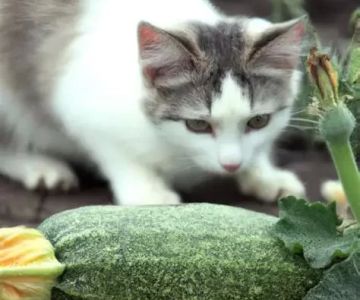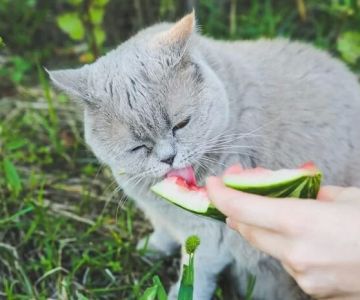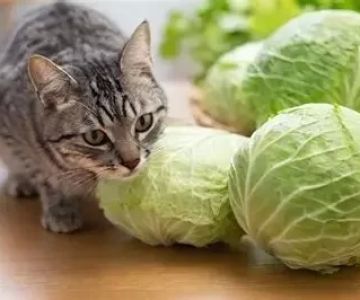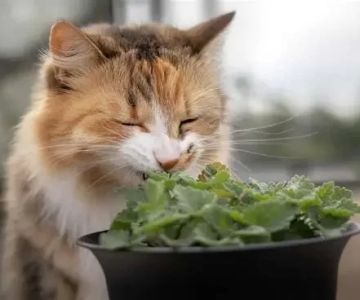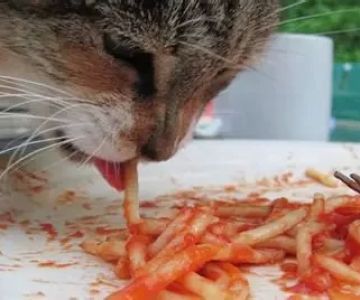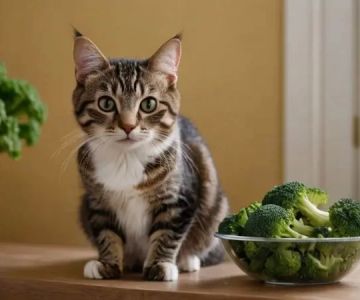1-Introduction to Eggplant for Cats
2-Is Eggplant Safe for Cats?
3-Nutritional Value of Eggplant for Cats
4-Potential Risks of Feeding Cats Eggplant
5-How to Safely Introduce Eggplant to Your Cat
6-Conclusion: Eggplant and Cats
1. Introduction to Eggplant for Cats
As cat owners, it’s natural to wonder if certain foods we enjoy are safe for our furry companions. Eggplant, also known as aubergine, is a common vegetable in many households. But when it comes to our cats, can cats eat eggplant safely? While cats are obligate carnivores and mainly require protein, many pet owners might want to know whether eggplant is safe to share with their cats occasionally. In this article, we’ll explore the risks and benefits of feeding eggplant to your cat and provide insight into how to properly introduce it to your pet’s diet.
2. Is Eggplant Safe for Cats?
Eggplant is not inherently toxic to cats, but there are some considerations to keep in mind. While eggplant itself does not contain the level of toxins found in some other vegetables (like onions or garlic), it does belong to the nightshade family, which includes plants like tomatoes and potatoes. These plants contain solanine, a compound that can be harmful in large amounts, particularly if your cat consumes the plant itself, not just the fruit.
Eggplant in small, cooked amounts is generally safe for cats. However, before introducing it to your pet’s diet, there are a few key things to consider to ensure it doesn’t pose any risk.
3. Nutritional Value of Eggplant for Cats
Eggplant, like many vegetables, is rich in fiber, vitamins, and minerals. While cats are obligate carnivores and their main source of nutrition comes from animal proteins, eggplant does contain certain nutrients that might benefit their health when given in moderation. Here's a breakdown of eggplant's nutritional value:
3.1 Vitamins and Minerals
Eggplant is rich in vitamins C, K, and B6, as well as potassium and folate. These nutrients support general health and immunity. However, cats do not require the same levels of these nutrients as humans, and they will primarily obtain these benefits from their regular animal-based diet.
3.2 Fiber Content
The fiber content in eggplant can be beneficial for cats that suffer from constipation. It can help regulate bowel movements, but too much fiber can lead to digestive upset, so it's essential to limit eggplant to small, controlled portions.
4. Potential Risks of Feeding Cats Eggplant
While eggplant can be a healthy, low-calorie treat for cats in moderation, there are potential risks to consider when feeding your cat this vegetable:
4.1 Solanine Toxicity
As mentioned earlier, eggplants belong to the nightshade family of plants, which contains solanine. Solanine can be toxic to cats in large amounts and may cause symptoms like vomiting, diarrhea, and lethargy. However, the levels of solanine in eggplant are generally low, and the fruit itself (not the leaves or stems) is less likely to pose a significant risk.
4.2 Digestive Issues
Cats’ digestive systems are not designed to process large amounts of plant material. Feeding your cat eggplant could result in gas, stomach upset, or diarrhea if introduced in excess. Always ensure that any vegetable or plant-based food is given in moderation.
4.3 Allergic Reactions
Although rare, some cats may have an allergic reaction to certain foods, including eggplant. Signs of an allergic reaction may include itchy skin, swelling, or vomiting. If you suspect your cat is having an adverse reaction, it’s important to stop feeding them eggplant and consult your veterinarian.
5. How to Safely Introduce Eggplant to Your Cat
If you’d like to give your cat a small amount of eggplant as an occasional treat, here are some tips to ensure you do so safely:
5.1 Start Small
When introducing any new food to your cat, always start with a small portion. A tiny piece of cooked eggplant can be given to see how your cat reacts. Monitor them for any signs of digestive upset or allergic reactions after eating the eggplant.
5.2 Cooked, Not Raw
Raw eggplant can be harder for cats to digest and may contain more solanine. It's best to cook the eggplant thoroughly before serving it to your cat. Avoid adding any seasonings, oils, or salts, as these could be harmful to your pet.
5.3 Serve in Moderation
Eggplant should only be offered as an occasional treat and in moderation. It should never replace a proper, protein-rich diet that your cat requires. Keep it as a small snack rather than a regular part of their meals.
6. Conclusion: Eggplant and Cats
Can cats eat eggplant? In short, yes, they can, but with caution. While eggplant itself isn’t toxic to cats, it does come with risks that should be considered, especially the potential for digestive upset or solanine toxicity. If you choose to introduce eggplant to your cat’s diet, do so in moderation, ensure it's cooked properly, and always monitor your pet for any adverse reactions.
Remember, your cat’s primary nutrition should come from animal-based proteins. If you have any concerns about what’s safe to feed your cat, or if you’re unsure about introducing new foods, consult with a veterinarian at Hidden Brook Veterinary to get personalized advice on your pet's diet.

